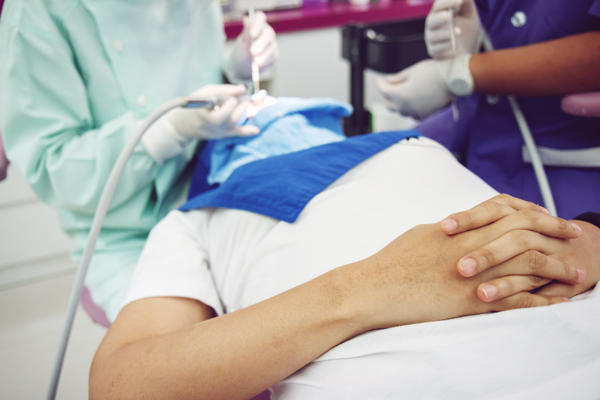Emergency Dentist: When To Seek Immediate Dental Care

Wondering when you should see an emergency dentist? Read on to learn more. Regular dental care can prevent emergency dental treatment. Unfortunately, dental emergencies do happen unexpectedly, even if you brush and floss regularly. In such cases, it is a great idea to visit an emergency dentist immediately.
When to visit an emergency dentist
Many people do not know whether their dental issue requires emergency dental treatment. If there is any doubt, the following are signs that a visit to the emergency dentist:
A cracked or broken tooth
One of the most common reasons for visits to the emergency dentist is a chipped or damaged tooth. Teeth are the strongest part of the body, but they can still break, either due to a bad fall or biting down on hard objects. A minor chip or crack in the tooth does not always require emergency dental treatment. However, a major fracture or break is often extremely painful and should be checked by a dentist.
A tooth breakage often leaves the root and inner layers exposed. Without repairing the breakage, the tooth can get infected, resulting in complications that might ultimately require an extraction. If the tooth is fractured beneath the gumline, the dentist must extract it completely.
Missing or damaged dental restoration
Old dental fillings or crowns may become unstable or break, causing discomfort. Patients with a damaged or lost filling can temporarily fill the cavity with a piece of gum to protect the cavity before a consultation with the dentist. Patients should take the damaged dental crown or bridge to the dentist. The dental professional will try to restore the item to its original position if possible. If this is not possible, they will suggest a replacement.
Dental abscess
A tooth with an abscess is usually extremely painful and must be addressed by a dental professional as soon as possible. This issue is caused by the accumulation of pus in the tooth due to an infection. The signs of an infected tooth might include recurrent tooth pain, swollen lymph nodes in the neck, fever, facial swelling, tooth sensitivity, and a small bump on the gums around the affected tooth.
An abscess is a dental emergency as it can spread quickly to various other body parts such as the jaw and even the brain. Patients can rinse their mouths with a small amount of saltwater several times to relieve the pain temporarily. The dentist needs to check the tooth immediately and remove the infection.
Severe toothache
A toothache does not always require emergency dentistry care because it is sometimes temporary and may heal on its own. However, if the toothache is intense and the teeth are hypersensitive to temperature variations, this might suggest an infection of the teeth or root. If the pain persists, patients should see a dentist immediately.
Final note
Pain is often the first indicator that you may require a visit to the emergency dentist. In cases of dental emergency, timing is of the essence. The earlier you seek treatment, the better the prognosis. Dental problems can happen unexpectedly and affect your whole body. To learn more about emergency dental services, contact our dental office today.
Request an appointment here: https://www.clevelanddentalassociates.com or call Cleveland Dental Associates at (281) 806-3166 for an appointment in our Cleveland office.
Check out what others are saying about our dental services on Yelp: Emergency Dentist in Cleveland, TX.
Related Posts
A broken tooth can be distressing, especially if you do not know where to turn when it happens. However, if a broken tooth is not an emergency, your general dentist can fix it in several ways. These professionals are skilled in restorative and cosmetic dentistry, which are important for repairing teeth.If the affected area has…
General dentists can perform dozens of different procedures, so they may have a long list of offered services. A general dentist focuses on the prevention (and fast restoration) of oral health issues. However, they may also provide more extensive procedures, such as teeth replacement, when necessary.Some general dentistry services are more common than others. Specifically,…
As a general rule, you should visit a general dentist every four to six months for check-ups and cleaning visits. You may need more frequent visits (or additional visits) if there are specific oral health concerns to address (i.e., dental trauma, cavities, etc.). This review discusses how frequently you should visit a general dentist and…
Most general dentists agree that having a broken tooth is more serious than it gets credit for. It is easy to overlook damage, especially if no pain is associated with it or the damage is not visible. However, leaving a damaged tooth untreated can result in serious consequences. This article will discuss four ways our…
